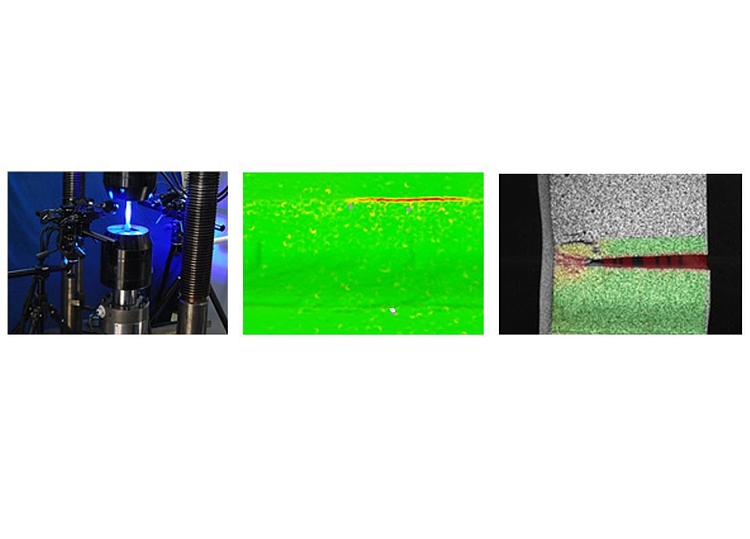Fatigue resistance of butt welds using high-strength offshore fine-grain structural steels with and without post-weld treatments for the construction of offshore wind energy converters

| Led by: | Elyas Ghafoori |
| Team: | Christian Dänekas, Jan Kulikowski |
| Year: | 2021 |
| Funding: | AiF gefördert durch das BMWi |
| Duration: | 01.01.2021-31.03.2024 |
To implement climate policy objectives a more economical and resource-saving construction of offshore wind energy converters (OWEC) is urgently needed. In particular, the increase of the fatigue resistance by using high-strength steels and by applying post-weld treatment methods offers great potential for reducing the use of materials and costs for monopiles. Especially in the production chain of OWEC, automated high-frequency mechanical impact (HFMI) treatment or deep rolling are suitable as post-treatment methods. The aim of the research project is to quantify the increase of fatigue resistance of butt welds made of high-strength off-shore fine-grain structural steels with and without post-treatment. For this reason, extensive experimental analyses and fatigue tests are conducted and evaluated on untreated and post-treated weld samples made of different high-strength fine-grain structural steels. As post-treatment methods, manual and automated HFMI treatment and deep rolling are compared. In order to ensure quality and reproducibility of the results, the subsurface properties of the post-treated welds are adjusted and experimentally examined. Numerical simulations of the post-treatment methods extend the parameter range and complement the experimental investigations. In addition, fatigue resistance calculations for the prediction of the service life are carried out and further developed. Fatigue tests are used to determine s-n-curves in the high cycle fatigue and very high cycle fatigue range. Furthermore, the influence of the sheet thickness on the fatigue resistance is investigated. The research project provides results that allow the steel grade and the post-treatment methods to be taken into account for design guidelines of OWEC support structures. This allows a more resource-saving and economical production of monopiles.
Research centres
- Institute for Steel Construction (Leibniz Universität Hannover)
- Institute of Production Engineering and Machine Tools (Leibniz Universität Hannover)


